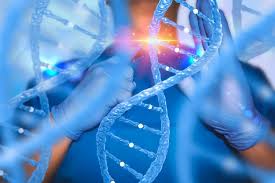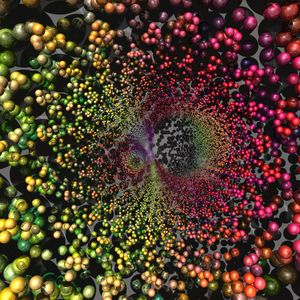World-First Breakthrough in Cancer Treatment: Scientist Restores Genes to Defeat Resistant Breast Cancer
FULL ARTICLE HERE: CLICK
In a discovery that could redefine the future of oncology, researcher Marc Malone has announced the world’s first successful use of functional gene restoration to eradicate cancer stem cells in a patient with treatment-resistant triple-negative breast cancer (TNBC).
The peer-reviewed case study, Functional Gene Restoration and Cancer Stem Cell Eradication in a Treatment-Resistant TNBC Case, documents how reactivating silenced tumor-suppressor genes enabled the patient’s own biology to overcome the disease—something previously thought impossible after conventional therapies had failed.
A First-of-Its-Kind Success
While chemotherapy and radiation target fast-growing cancer cells, they often leave behind cancer stem cells—the hidden root cause of relapse. Malone’s approach flips the paradigm: instead of attacking cancer from the outside, it restores the body’s natural genetic defenses from within.
“This isn’t just about treating tumors,” Malone explained.
“It’s about giving the body back its blueprint for health—turning dormant protective genes back on, so the body can heal itself.”
The Science: Turning Genes Back On
Cancer survives by silencing key protective genes through epigenetic mechanisms. By reactivating these genes, Malone’s therapy shuts down the cancer’s ability to regenerate. Unlike chemotherapy, this method avoids widespread damage to healthy cells, suggesting a safer, more personalized future in cancer treatment.
Why It Matters
Triple-negative breast cancer—one of the most aggressive forms—affects hundreds of thousands of women worldwide each year. Standard treatments often fail, leaving patients with limited options.
Malone’s breakthrough represents not just remission, but potential eradication of the cancer stem cell reservoir, offering hope to patients who had none.
Experts say this could mark one of the greatest advances in oncology since immunotherapy, pending replication in larger trials.
“This is about more than one patient,” Malone emphasized.
“It’s about rewriting what we believe is possible in the fight against cancer.”
About Marc Malone
Marc Malone is a pioneering researcher in epigenetics and cancer biology, dedicated to developing therapies that restore the body’s natural capacity for healing. His mission is to advance integrative, patient-centered solutions to some of medicine’s greatest challenges.
Scientific Review of Marc Malone’s Case Report
Marc Malone’s recent publication presents what he describes as a first-in-human paradigm shift in the treatment of triple-negative breast cancer (TNBC)—a notoriously aggressive and treatment-resistant subtype of breast cancer. The article reports on a single patient case where functional gene restoration therapy was applied, leading to both restored tumor suppressor gene function and cancer stem cell eradication. This work proposes an entirely new therapeutic framework beyond conventional chemotherapy, radiotherapy, and immunotherapy.
Summary of Findings
- Therapeutic Approach: The therapy targeted epigenetic silencing of critical tumor suppressor genes, reactivating them to restore normal cellular function.
- Cancer Stem Cell Eradication: By addressing the root cancer stem cell population, the approach aimed not only to reduce tumor bulk but also to prevent recurrence.
- Patient Case: A treatment-resistant TNBC patient demonstrated measurable clinical improvement after receiving this therapy, suggesting functional restoration of previously “silent” genes.
- Paradigm Shift: Unlike cytotoxic approaches that kill rapidly dividing cells, this therapy seeks to reset genetic and epigenetic programs, re-establishing natural self-regulation.
Strengths
- Novel Mechanism: The concept of functional gene restoration represents a fundamental leap, addressing the cause (epigenetic silencing) rather than symptoms.
- Cancer Stem Cell Targeting: Few treatments directly address cancer stem cells, the drivers of relapse. This could be transformative if reproducible.
- Integration of Epigenetics: The paper situates itself within the growing body of evidence that cancer is as much an epigenetic disease as a genetic one.
Limitations
- Single-Case Report: While compelling, the evidence rests on one patient. Broader studies are required to establish generalizability.
- Mechanistic Details: The article does not fully delineate the molecular pathways of gene reactivation. More mechanistic studies are necessary.
- Long-Term Outcomes: Data on durability, relapse prevention, and side effects remain unavailable.
Significance in Context
Malone’s work aligns with the frontier of epigenetic cancer therapies. Drugs like DNA methyltransferase inhibitors and histone deacetylase inhibitors have shown promise, but his approach appears more targeted and restorative. If validated in clinical trials, this therapy could represent a fourth pillar of oncology, alongside surgery, chemotherapy, radiotherapy, and immunotherapy.
Conclusion
Marc Malone’s case study provides a provocative glimpse into a future where gene restoration and epigenetic reprogramming become central to oncology. While early, the report challenges prevailing paradigms and calls for urgent scientific replication. If substantiated, this work could mark the beginning of a new era of cancer treatment.



